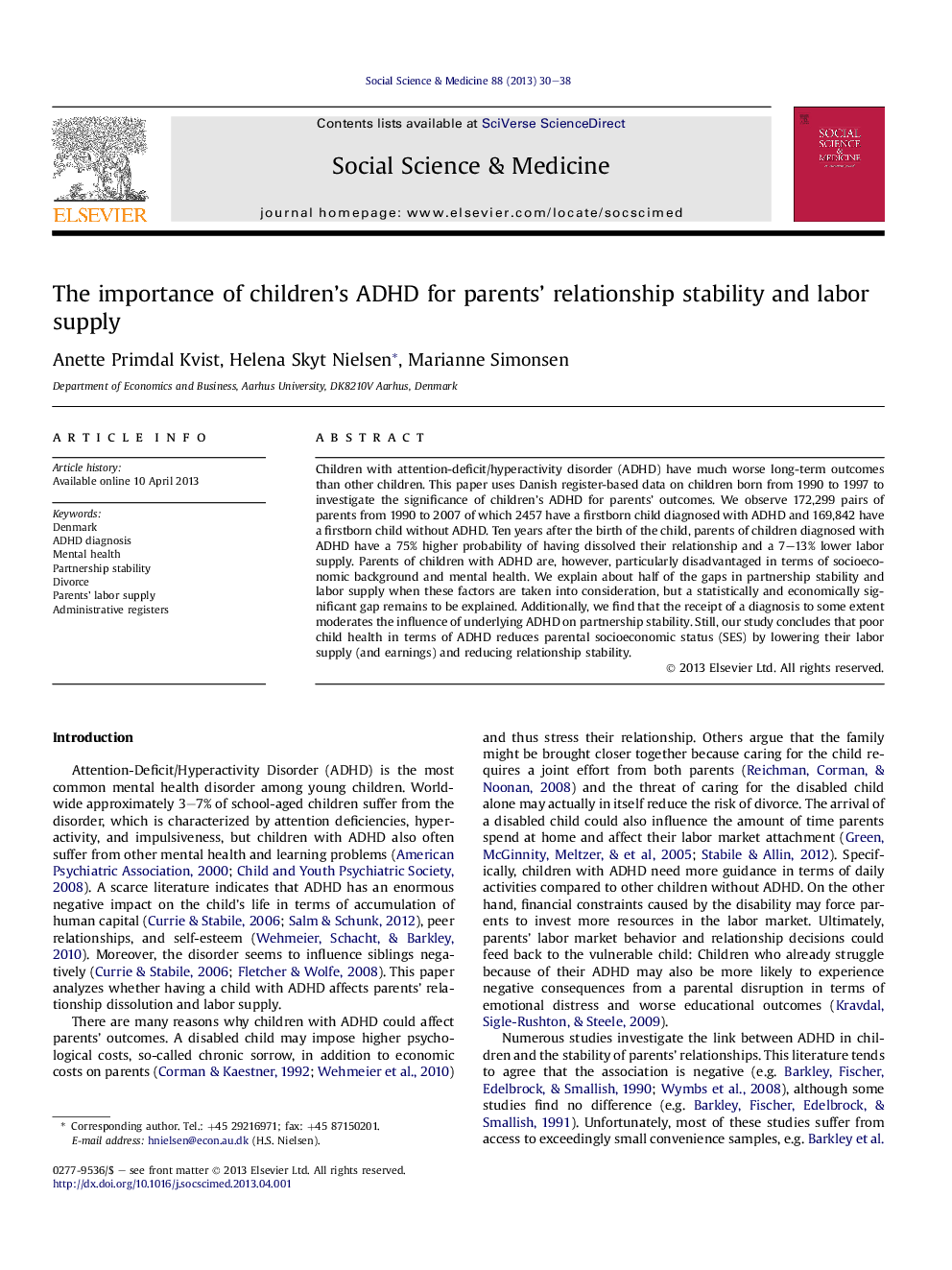| Article ID | Journal | Published Year | Pages | File Type |
|---|---|---|---|---|
| 7337367 | Social Science & Medicine | 2013 | 9 Pages |
Abstract
Children with attention-deficit/hyperactivity disorder (ADHD) have much worse long-term outcomes than other children. This paper uses Danish register-based data on children born from 1990 to 1997 to investigate the significance of children's ADHD for parents' outcomes. We observe 172,299 pairs of parents from 1990 to 2007 of which 2457 have a firstborn child diagnosed with ADHD and 169,842 have a firstborn child without ADHD. Ten years after the birth of the child, parents of children diagnosed with ADHD have a 75% higher probability of having dissolved their relationship and a 7-13% lower labor supply. Parents of children with ADHD are, however, particularly disadvantaged in terms of socioeconomic background and mental health. We explain about half of the gaps in partnership stability and labor supply when these factors are taken into consideration, but a statistically and economically significant gap remains to be explained. Additionally, we find that the receipt of a diagnosis to some extent moderates the influence of underlying ADHD on partnership stability. Still, our study concludes that poor child health in terms of ADHD reduces parental socioeconomic status (SES) by lowering their labor supply (and earnings) and reducing relationship stability.
Keywords
Related Topics
Health Sciences
Medicine and Dentistry
Public Health and Health Policy
Authors
Anette Primdal Kvist, Helena Skyt Nielsen, Marianne Simonsen,
